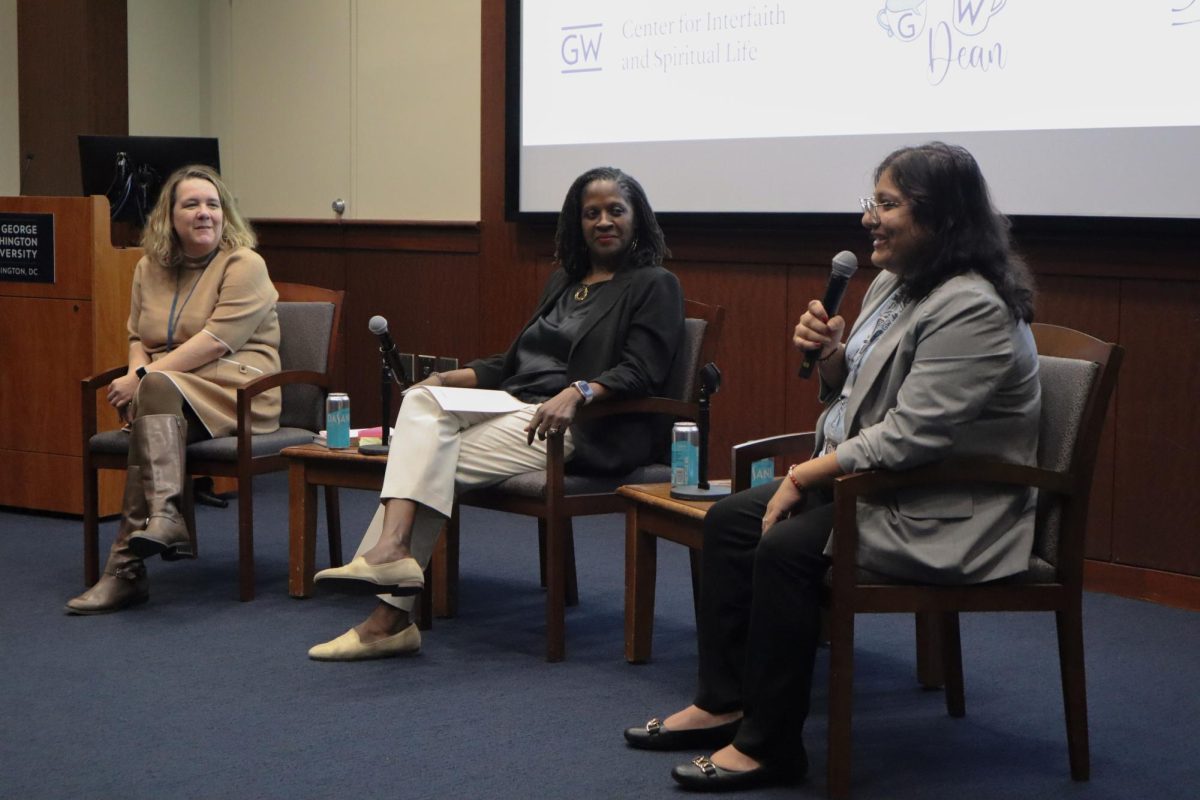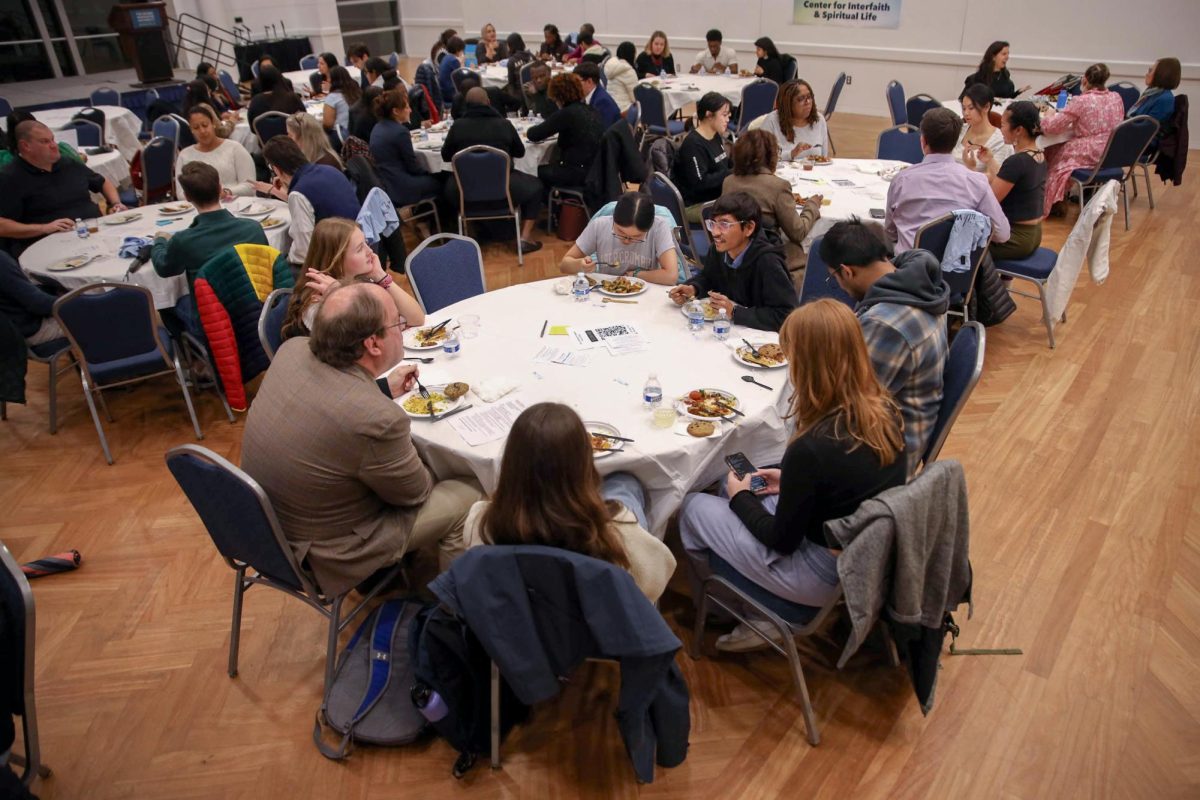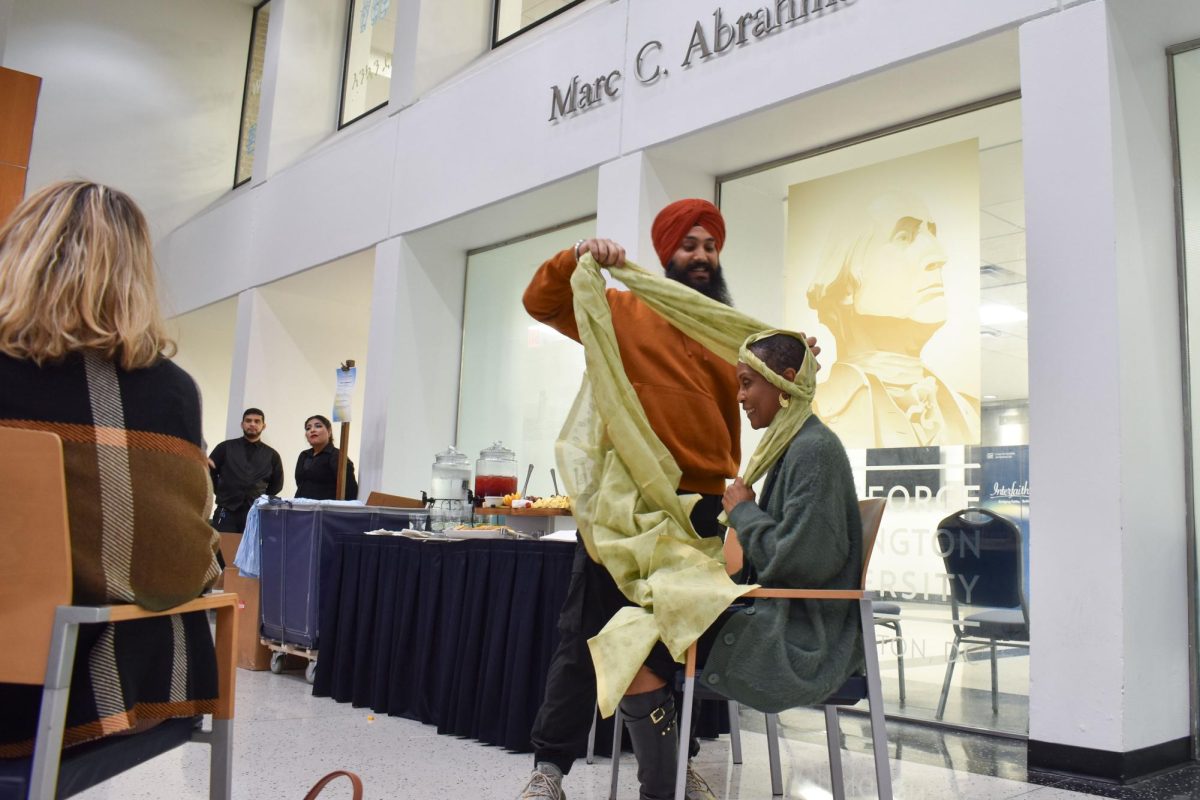The Center for Interfaith and Spiritual Life concluded the University’s annual Interfaith Week on Saturday, the second iteration of the programming this year.
The event, which consisted of a variety of educational workshops, is the first major programming the center has hosted since its establishment this semester. The Office of Diversity, Equity and Community Engagement hosted a separate week of programming in April after officials canceled the Multicultural Student Services Center’s version of Interfaith Week in January.
Leadership within the center said the annual event was traditionally held in the fall — different from previous years when it was hosted in early February — and this Interfaith Week marks a return to its original timeline. The center’s leadership said the Division for Student Affairs invited all University community members to submit proposals for programming that would contribute to the goals of the center and Interfaith Week.
The leaders said the week “highlights” the center’s launch, and religious studies faculty members have been “engaged” in its development and contributed to the week by hosting an event titled “Rel-X talks” Friday, where some of the department’s students and faculty presented their research about topics, like religion and artificial intelligence.
“The Center looks forward to continuing to collaborate with student organizations and encourages all students to reach out to learn more about ways they can get involved in upcoming initiatives,” CISL leadership said in an email.
The programming included events to introduce community members to the center’s leadership, including a meet-and-greet and an open house on the lower level of University Student Center, where the former Campus Store was located. In October, officials hired Kristen Glass Perez to serve as the University’s chaplain and Simran Kaur-Colbert as the center’s inaugural director.

In April, the MSSC’s former graduate assistant for religious and spiritual life said he resigned from his position after officials canceled the center’s original plans for its annual Interfaith Week in January and transferred religious and spiritual life to the Division for Student Affairs, who oversees the center.
Students who engaged in programming said faculty and staff also attended the events, and student organization leaders said they gave input on the week’s events despite varied involvement in programming.
Sophomore Lydia Noteman, an education intern at GW Hillel, facilitated a conversation between attendees about religious pluralism Wednesday at an event at Zinger’s — Hillel’s cafe — titled “Wings and Wisdom.” Noteman said about 20 people, primarily staff members, attended the discussion, which centered on the influences of faith and how it affects views on different religions.
“I went into yesterday thinking I was going to be talking to a bunch of students, and then all these staff members kept showing up,” Noteman said.
Officials hosted the Interfaith Dinner on Thursday in the student center’s Grand Ballroom where Dean of Students Colette Coleman read remarks about the importance of fostering interfaith engagement from University President Granberg, who she said couldn’t attend the event in person.
Earlier this semester, the University scored a two out of five stars on a national database that evaluates a participating school’s efforts toward promoting an inclusive environment for students with different religious identities.
The dinner included faith practitioners from different religions, including Hinduism, Buddhism and Protestantism from the Interfaith Council of Metropolitan Washington, who facilitated a workshop earlier in the week titled “Ask Me Anything” — the same one they hosted during the ODECE’s iteration in April. Leaders facilitated conversations about religious and spiritual identities amongst attendees while they ate food, like caprese sticks and tofu kabobs.
Melissa Carter and Robert Taylor Jr., the associate and assistant director of The Center for Global Spiritual Life at New York University, hosted a “Faith Zone Training Workshop” on Monday, where attendees shared spiritual memories from childhood and were asked how they would respond to scenarios that excluded different religious groups. About 20 attendees, the majority of which were faculty and staff members, learned about religious literacy — the ability to understand religious and cultural intersectionality — and how they aim to apply it in their daily routine.
“The work of religious literacy in bridge building can be difficult but through deep care and curiosity, it’s possible,” Taylor said.
Most student leaders of faith-based organizations said they were invited to participate in the week’s programming, but their attendance varied depending on their existing plans. In previous years, the now-defunct Interfaith Council, a collective of students from different faiths, hosted the annual week with the MSSC before the organization went inactive spring 2023.
Junior Sai Charan Chodavarapu, the Hinduism chair for the Hindu Students Association, said HSA was invited to participate in Interfaith Week this semester but couldn’t because the organization is planning for their Diwali festival usually held in November.
He said the center’s director asked for HSA’s input on the programming beforehand, adding that communication with staff at the interfaith center has been more consistent than the MSSC, which experienced staff turnover last semester.
“Simran is actively talking to me multiple times a week, getting my input on things,” Chodavarapu said. “She’s trying to reach out as if she’s a member of the community.”

Senior Aanya Usmani, an executive board member for the Muslim Students’ Association, said MSA was “confused” when they saw their regularly scheduled Jummah or Friday prayer event on the programming list after the center’s leadership said their plan to have an imam lead a prayer fell through.
Usmani said MSA has been in contact with the center’s leadership through the organization’s adviser. She said Interfaith Week should not be entirely student-led because student organization leaders are busy planning programming for the communities they serve but that students and faculty should aim to foster interfaith connections throughout the year.
“If it’s only one week of activities that are aimed at interfaith, that don’t have lasting effects, then it seems kind of performative to even have it,” Usmani said.
Junior Aidan Cullers, co-president of the Jewish Student Association, said JSA talked to the interfaith center’s leadership about how it can meet the needs of Jewish students on campus, like providing and labeling kosher food items.
Cullers added that he thinks the week’s events provided an opportunity for the center to “get their bearings” on where students are in regard to interfaith dialogue and offered a place for religious students to bond over common values.
“I hope for students it’s a time that we can come together and talk about how similar we are as faith-based groups and talk about our shared values and what we all value,” Cullers said.
Megan Clancy, the president of GW Catholics, said the organization’s chaplain was the main communicator between GW Catholics and the interfaith center, and they hosted several events during the week including Tuesday Night Dinner, Adoration and Mass in the Newman Center townhouse on F Street.
“I am eager for next year’s Interfaith Week, where the faith-based orgs on campus can really work with and plan alongside the leadership of the Interfaith Center,” Clancy said in a message.
Graduate student Jade Do, the president of Falun Dafa, said the organization was not contacted to be a part of this year’s programming, despite their involvement in the ODECE’s prior iteration but was “happy” to attend and participate in the events.
William Boyce, a professorial lecturer of religion, said Interfaith Week provides students with many opportunities to engage in “coalition building” within and outside of religious boundaries.
“While our aims are differently oriented than the Center, which explicitly services the needs of students by resourcing their personal, social, and spiritual lives, I am glad for expanding circles of investment in the intellectual and interpersonal mission of the University, to educate and empower learners of all ages,” Boyce said in an email.





